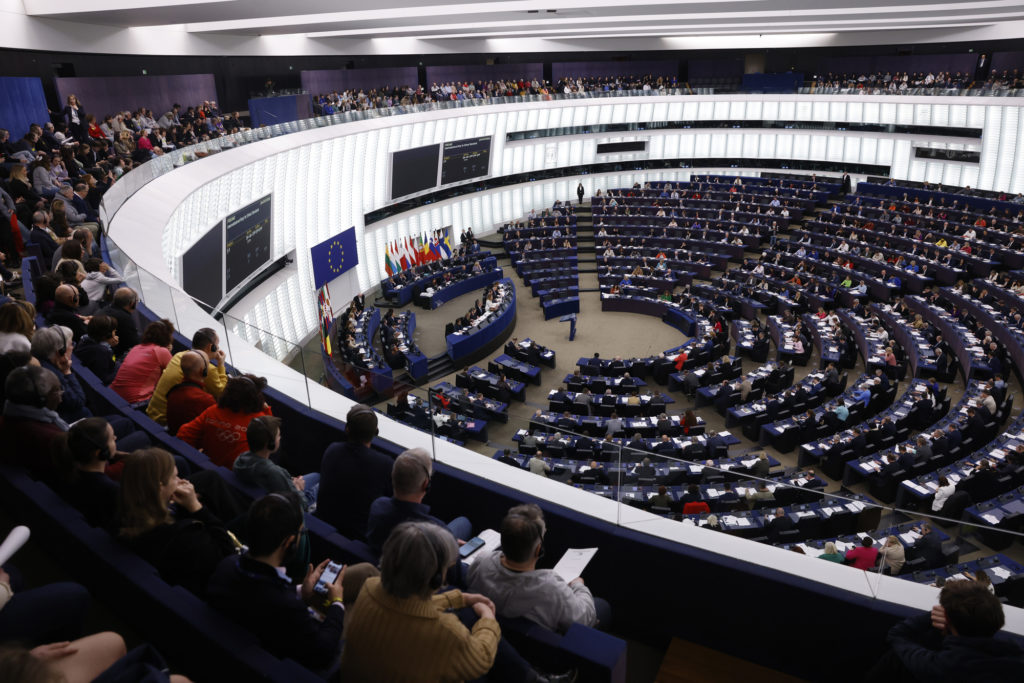European MEP fears weakening support for Ukraine in case of success of “the Kremlin’s votes”
Viola von Cramon, Member of the European Parliament (MEP), fears that if radical parties strengthen their presence in the European Parliament following the European elections, support for Ukraine may weaken.


As noted in an interview with Interfaks-Ukraina, Viola von Cramon, Member of the European Parliament (MEP), Deputy Chair of the European Parliament’s delegation to the EU-Ukraine Association Committee, fears that support for Ukraine may weaken in Europe if radical parties strengthen their presence in the European Parliament following the European elections.
Von Cramon praised the work of the current European Parliament in supporting Ukraine. “The Parliament was at the forefront of supporting Ukraine, providing military, financial, legal and humanitarian support. Everything that was later picked up by the European Council and the Commission was originally conceived here. So, as far as Ukraine is concerned, I think we have a very strong team,” the MEP noted.
However, she did note that she fears what the future might hold with regards to European support for Ukraine after the EU elections in June of this year.
”I’m not so much afraid of mistakes, because I don’t see us making big mistakes, but I’m very afraid of the future: if many of us are not re-elected, if the right-wing is stronger, support for Ukraine may decrease,” the European politician said.
She explained that “every time someone from the AfD (Alternative für Deutschland – a right-wing populist party in Germany) or other right-wing parties speaks at the plenary session, it is the Kremlin’s voice.”
“The more such voices you have, the harder it is to get strong support in general. You will still have support after the elections. But if you have more pro-Putin, pro-Kremlin and pro-Russian votes, I think it will be more difficult, and this support will not be holistic. I’m still optimistic, but I’m also a little concerned,” von Cramon argued.
At the same time, she noted that the emergence of new crises, in particular, Israel’s war against the Hamas terrorist organization, the difficult situation in the Gaza Strip, and the Houthi attacks in the Red Sea, do not contribute to the focus on Ukraine.
At the same time, the MEP expressed confidence that Ukraine will not be defeated.
“Ukraine will not lose. It is rather a question of what they (Ukrainians – IF-U) will define as a victory, what they will define as a success. But I am absolutely sure that Ukraine will not fail,” von Cramon said.
The European elections
The European Parliament elections in 2024 will shape the political direction of the EU over the next five years. Over the past two years, the EU has been remarkably united when it comes to supporting Ukraine. Despite internal disagreements, the EU has remained strongly pro-Ukraine, providing the country with substantial financial aid and even some military support through the European Defense Agency.
The upcoming elections for the European Parliament will not fundamentally change the EU’s pro-Ukraine stance, but secondary effects might make providing support for Ukraine more difficult in the future.
Public support for the far right is sweeping across the continent. In the Netherlands and Portugal, far-right parties have also increased their vote share in recent national elections.
Meanwhile, polling ahead of German local elections, and Austrian and Belgian parliamentary elections this year, suggests they are likely to make gains in these countries too. There is a sense across Europe that the far right is gathering momentum and expanding beyond its usual core vote. This trend is mirrored in the European parliament, where polls suggest far-right groupings are likely to increase their vote share in elections in June.
The European Parliament elections are scheduled for June 6-9, 2024.
Read more:
- Russia suspected of funneling funds to Germany’s AfD party for pro-Russian messaging
- Hungary far-right party calls for seizing Ukraine’s Zakarpattia if Russia wins
- Putin has created a Fifth International organizing the right, Felshtinsky says
- Putin regime has set up not one but five ‘fifth columns’ in Germany, Eidman says
- Populists, EU-sceptics emerge as one of the biggest threats to Ukraine support, new study reveals
You could close this page. Or you could join our community and help us produce more materials like this.
We keep our reporting open and accessible to everyone because we believe in the power of free information. This is why our small, cost-effective team depends on the support of readers like you to bring deliver timely news, quality analysis, and on-the-ground reports about Russia's war against Ukraine and Ukraine's struggle to build a democratic society.
A little bit goes a long way: for as little as the cost of one cup of coffee a month, you can help build bridges between Ukraine and the rest of the world, plus become a co-creator and vote for topics we should cover next. Become a patron or see other ways to support.



